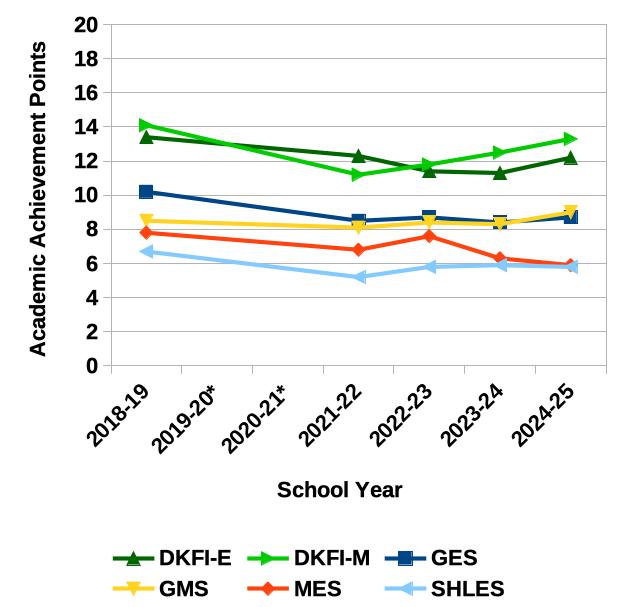As uncertainty at the U.S. Agency for International Development (USAID) sends ripples through Greenbelt, one family shares how the political and legal battles in Washington, D.C. are impacting their work and lives, thousands of miles from home.
Just as the USAID workers we spoke with last week requested we withhold their names due to fear of reprisal, this family also requested we not use their names, position or specific geographical posting to avoid being identified.
“Max” works for a company that is a USAID contractor. He’s been working with USAID for over two decades and for the last two years he’s been in his current location in Asia, posted with his family, which includes a child in elementary school. “The news says two thousand USAID people are ordered home,” but “there are more than that, because [there are people] like us, and then I think that many people do not really know what that means … there are families,” said Max.
Speaking with the News Review on Sunday he said, “We don’t know anything. That’s, I think, the main concern … the absence of any guidance.” He said he thinks his company has decided to repatriate his family by the end of the month but he has also been told, “We will send you further guidance.” He continued, “The entire communication with USAID has basically broken down. They’re in the same boat. It’s not that they don’t want to provide any guidance but they just can’t. … They don’t have any idea what’s going on, what they’re supposed to do.”
Stop Work Order
On January 25, Max and his company received a stop work order. It came on a Saturday evening. Stop work orders are not common, but not entirely unusual, he says. He describes them as a tool to intervene. “Usually, however, you get a stop work order, discuss terms and solve an issue, he says. Yet, in this case there’s no ability to discuss and no guidance. The stop work order came in the middle of trainings with host government counterparts. “It’s not necessarily helpful in building a good relationship with the government,” he noted, “but that’s what we had to do because stop work is stop work.”
Though stopping work may sound simple, there are lots of questions to consider. For Max’s project, there are lots of staff, almost all of them local, and “you need to stick to the labor laws in the country,” he noted, yet there are unanswered questions about whether you’re allowed to pay the salary of the staff who are now not working. There are day-to-day questions where someone needs to make a decision, he says. “It would be very simple at the national level to decide whether salaries are eligible or not … then you can do something about it, whatever the decision is. But that’s not provided so a lot of things are up in the air. So we need to interpret, provide the best guess of how things are and then operate like that. All while not getting paid from the government,” he said.
“The stop work order is a lot of work,” joked Max. He’s directing people not to work, looking at regulations and financial scenarios, figuring out how to respond and determining how they can communicate with USAID and if there’s someone to communicate with. “It does keep me quite busy, actually,” he said. “It’s definitely not a joyful situation, because I get a lot of question marks that I look into every day: the eyes of my staff.” It’s disheartening to not be able to guide his staff on what’s going on.
It’s also hard to stop their work when they were at a good spot, he says. They had worked very closely with the government there and they had just had some breakthroughs. They were in the middle of trainings that were the result of long negotiations. “This project is in year four of a five year term. That’s the time when you harvest the fruits,” said Max. Even if they were to restart he’s not sure they could make up for the time and the trust that’s been lost. “It took a while to build it,” he said of that trust.
Max describes USAID as “one of the more stringent organizations” when it comes to how dollars are spent and financial audits. “This is not an industry where there’s always fraud and corruption. It’s the opposite,” he said.
No Payments
Stopping payments to companies and non-governmental organizations “will basically break the entire sector right now,” said Max. “That’s what’s driving the entire downfall.” Even work done as far back as December has not been paid for, he said. Now his company is paying employees with no guarantee there will be reimbursement and weighing options in a current vacuum of information. “We are obliged to pay our employees, otherwise that would be slavery,” said Max, but each day the company is advancing more money, not knowing if it will ever be repaid, on top of past work that hasn’t been paid for. “Is this a 90-day review, is it not a 90-day review? How long will it take? Is it a review at all? Who will do this review if everybody is fired from USAID?” asked Max.
Personal Outlook
The uncertainty is hardest. “That makes it, on a personal level, quite traumatizing,” said Max, “because you cannot prepare for anything.” His family had expected to stay where they are for at least another year. Their home in Greenbelt is rented. They will need to arrange a school transfer for their child and also what to do with their belongings. “Basically, day-to-day life is very, very difficult,” he said. For more than two weeks everything’s been up in the air, creating a situation that he described as “distressing.” Further guidance is supposed to be coming and possibly exceptions for families with children in school.
Max feels confident that his company will be able to make travel arrangements and fly them home but he doesn’t know what will become of their belongings: his daughter’s piano that she brought from Greenbelt, bicycles, their furniture. There are things they flew there via airfreight in some 20 or so bags spread over several trips, and there are things they bought there that they were planning to bring home to Greenbelt. “We might be told next week that we can’t bring anything with us, so we might just sell it,” said his wife, Julie (not her real name). Yet if they don’t go home they may need it. They’re expecting a single flight to take them home and don’t know how much they’ll be able to ship, but clarity on that would bring some peace of mind so they can pack, sell things or give them away. They’re expecting to hear more this week, whether they are an exception, whether they need to pack.
Future Work
Max said he tries not to be too pessimistic but on return his company will likely have to quickly pivot to other sectors, which might not be development. “We’re good at what we’re doing,” he said, noting that project management is applicable across the board; however, “that’s not our soul, I’d say.” So, about the future for his company and himself he said, “I don’t know, it very much depends on how the new USA could shake out.” He noted that, “Many companies will certainly go down through this,” though hopes his will not. Obviously, the prospects in the job market are “very bad,” he conceded. “First of all, that sector is not there any more and then everybody who was in that sector is looking for a job. … and these are generally very, very good people, so you have strong competition,” he said. If they need to return he may need to look for a job in another field, he believes.
Meanwhile, Julie was not permitted to work in Asia and gave up her job back home when they left. She’s already reached out to people she used to work with, who are supportive and kind, she said.
A Home in Greenbelt
The way their child is handling the situation is a bright spot for Max and Julie. Though she is in elementary school there and has “tons of fun” and “tons of friends” where they are, she would be happy to come back to Greenbelt, her friends and her old school. Being able to return home to Greenbelt also brings them comfort. They have a community that is friendly and supportive to come back to and it’s heartwarming, said Max.
Neighbors have offered them a room to stay in. Looking for the positive, Julie suggested it will be like a sleepover every day for her daughter if they have to implement their plan to return. “We are excited to actually go back,” she said. “It’s sad but also it’s nice to have something to look forward to,” she said, of the community they have back in Greenbelt.” Max said, “There are nice people in Greenbelt. That’s really something that is heartwarming with all these things that are ongoing. I’m not sure if many sorts of islands like that exist now. … Greenbelt is a nice community that sticks together.” It enables them to look forward to returning home, despite the situation.
Julie recounted the conversations with their daughter: “‘When are we leaving? When are we leaving?’ ‒ ‘We don’t know’ ‒ ‘When will we know?’ ‒ ‘We don’t know.’”
“I sugarcoat things so it doesn’t sound so bad,” said Julie. Their daughter knows what it means to transfer, said Max, she’s done it before and in fact she was born at another post. It’s her birthday at the end of the month. Her mother has promised her two celebrations ‒ one with her school friends there before they leave and one with her friends in Greenbelt when they get back.




